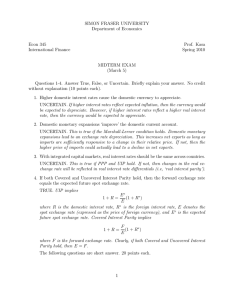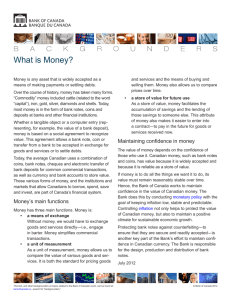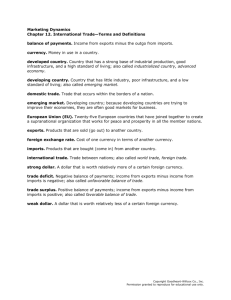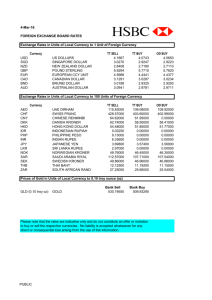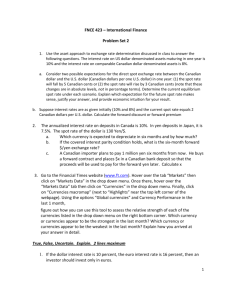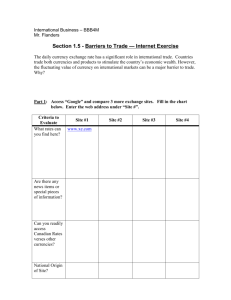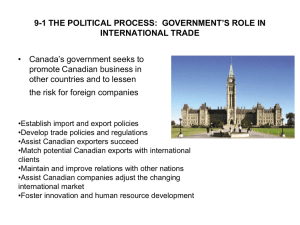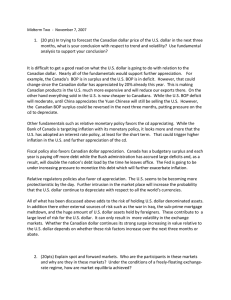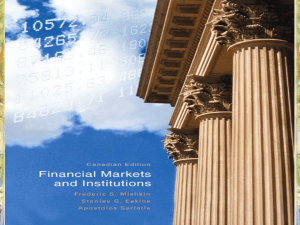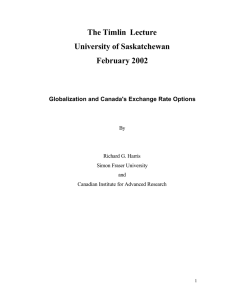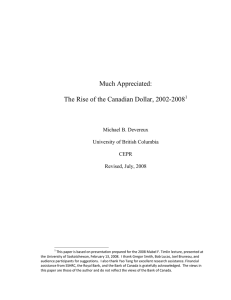9.4 Managing International Financial Risks
advertisement
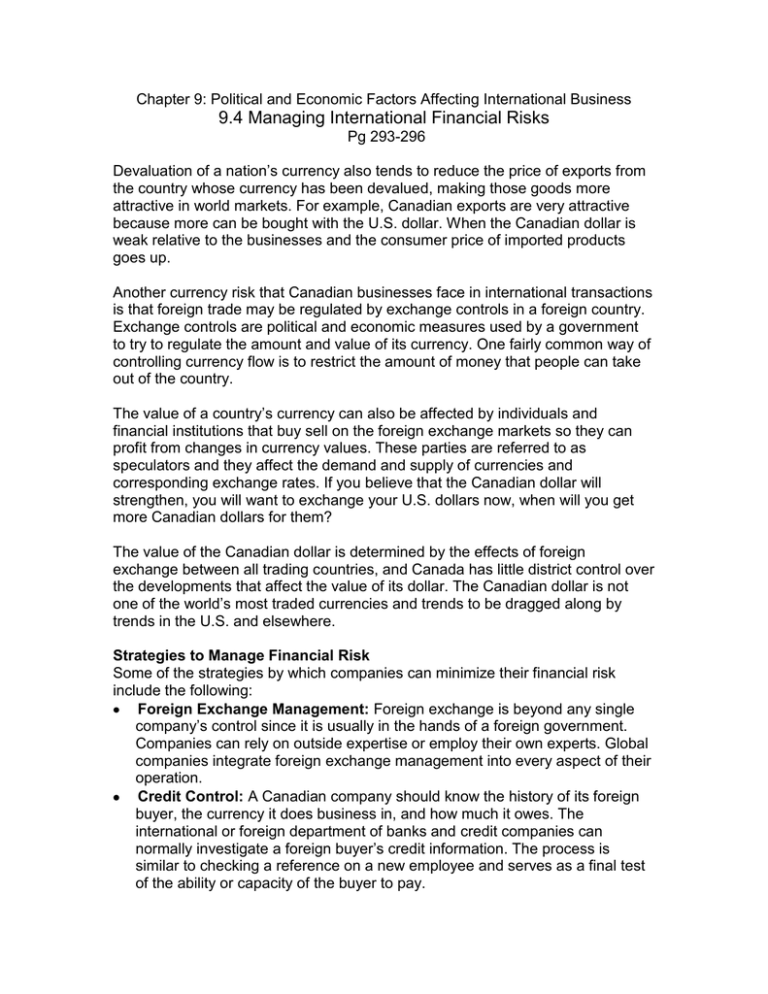
Chapter 9: Political and Economic Factors Affecting International Business 9.4 Managing International Financial Risks Pg 293-296 Devaluation of a nation’s currency also tends to reduce the price of exports from the country whose currency has been devalued, making those goods more attractive in world markets. For example, Canadian exports are very attractive because more can be bought with the U.S. dollar. When the Canadian dollar is weak relative to the businesses and the consumer price of imported products goes up. Another currency risk that Canadian businesses face in international transactions is that foreign trade may be regulated by exchange controls in a foreign country. Exchange controls are political and economic measures used by a government to try to regulate the amount and value of its currency. One fairly common way of controlling currency flow is to restrict the amount of money that people can take out of the country. The value of a country’s currency can also be affected by individuals and financial institutions that buy sell on the foreign exchange markets so they can profit from changes in currency values. These parties are referred to as speculators and they affect the demand and supply of currencies and corresponding exchange rates. If you believe that the Canadian dollar will strengthen, you will want to exchange your U.S. dollars now, when will you get more Canadian dollars for them? The value of the Canadian dollar is determined by the effects of foreign exchange between all trading countries, and Canada has little district control over the developments that affect the value of its dollar. The Canadian dollar is not one of the world’s most traded currencies and trends to be dragged along by trends in the U.S. and elsewhere. Strategies to Manage Financial Risk Some of the strategies by which companies can minimize their financial risk include the following: Foreign Exchange Management: Foreign exchange is beyond any single company’s control since it is usually in the hands of a foreign government. Companies can rely on outside expertise or employ their own experts. Global companies integrate foreign exchange management into every aspect of their operation. Credit Control: A Canadian company should know the history of its foreign buyer, the currency it does business in, and how much it owes. The international or foreign department of banks and credit companies can normally investigate a foreign buyer’s credit information. The process is similar to checking a reference on a new employee and serves as a final test of the ability or capacity of the buyer to pay. Open Accounts: Open accounts can also be used to reduce financial risk. An open account is an agreement between the two companies that future shipments of a product will be stopped if payment is not made. An open account might cause problems if the order is rather large and expensive, because the exporting company could face added risk by not being paid on time. Insurance: A company also has the option of purchasing insurance to cover non-payment of international invoices. If this happens, the exporter receives a majority of its invoiced amount from the insurer. With this kind of insurance in place, companies might feel more secure operating in an open account. Analyzing Foreign Investment Climates Companies invest in other countries to obtain raw materials, acquire products at a lower cost, and enter local markets. A company usually decides to invest in a country after it has had success in export. International business investors need to research and analyze potential foreign investments carefully. A checklist for evaluating the investment climate: General political stability: Form of government, rivalries and conflicts present, past political climate. Government policies towards foreign investment: Trade agreements and attitudes. Policies and legal factors: Labour laws, honesty of public officials, and taxation on profits. Economic environment: Per capita income, infrastructure, and economy. International payments: Exchange rate.
